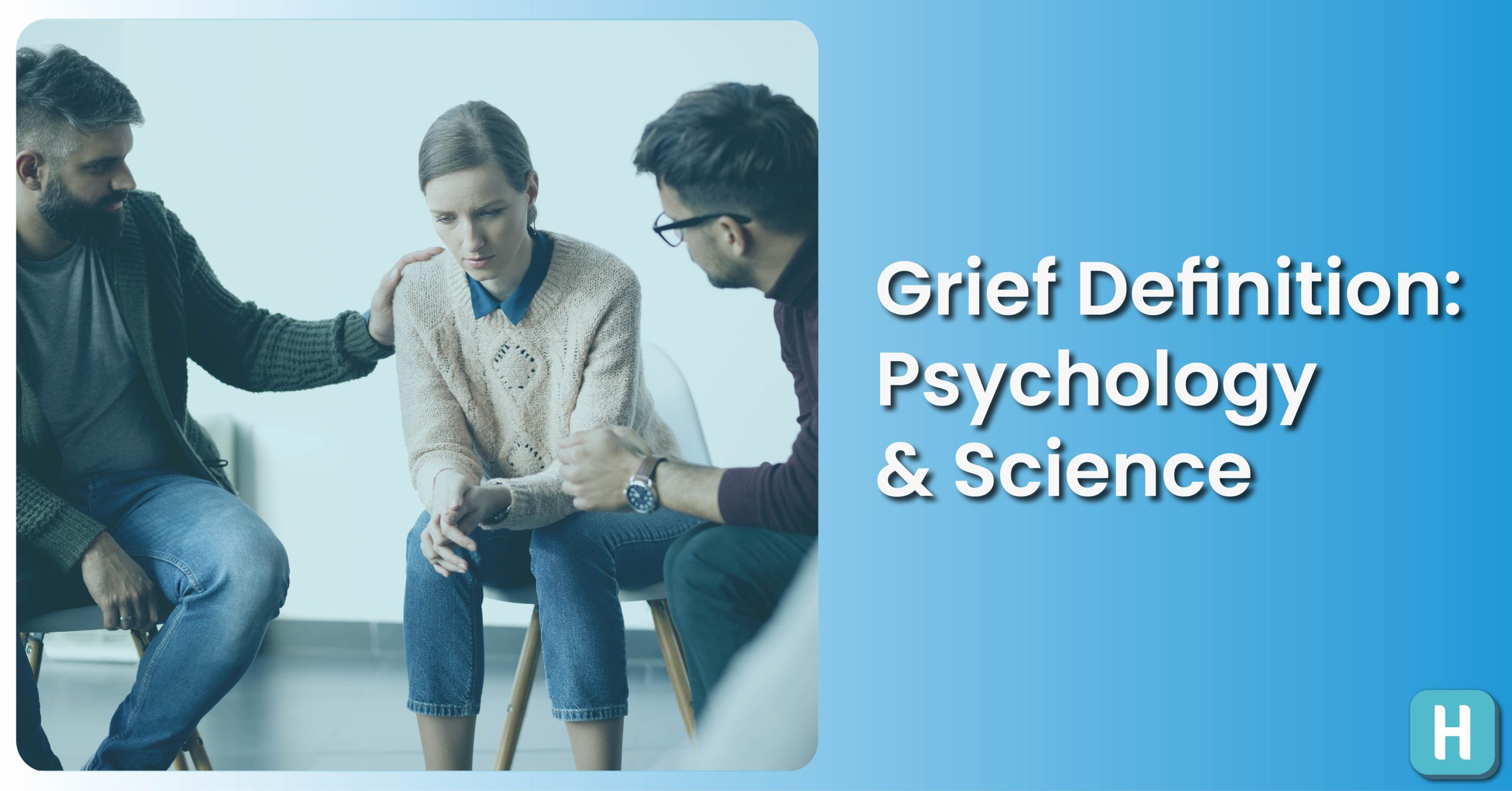Grief is a natural human response to loss, a complex emotional and psychological process that arises when something or someone we value is taken away. It’s not just sadness; it encompasses a wide range of feelings, thoughts, and behaviors.
Psychology recognizes grief as a multifaceted experience, often accompanied by physical, emotional, social, and spiritual changes.
For example, grief can manifest as physical symptoms like fatigue, changes in appetite, or difficulty sleeping. Emotionally, it can involve intense sadness, anger, guilt, or even numbness. Socially, grief can lead to withdrawal from social activities or difficulty concentrating.
The Grieving Process: Stages and What to Expect
While the grieving process is unique to each individual, there are common stages that many people experience. Understanding these stages can help one with relating to these emotions and regulating them as needed. Here’s a quick breakdown of these stages, according to the APA:

- Denial: A temporary state of disbelief and shock, often acting as a buffer against the overwhelming reality of loss. This stage can involve feeling numb, detached, or even refusing to accept the loss.
- Anger: Frustration and resentment directed at oneself, others, or even the deceased. Anger can be a natural response to feeling powerless or helpless in the face of loss.
- Bargaining: Attempting to negotiate with a higher power or fate to reverse the loss. This stage may involve making promises or making deals in an attempt to undo the loss.
- Depression: Overwhelming sadness, hopelessness, and despair. This stage can involve feelings of emptiness, exhaustion, or a loss of interest in activities that were once enjoyable.
- Acceptance: Coming to terms with the loss and finding a way to move forward. This stage does not mean forgetting the person or the loss, but rather finding a way to integrate the loss into your life and continue living.
It’s important to remember that these stages are not linear and can be experienced in different orders or even simultaneously. Therefore, it’s necessary to connect with professional therapists before making any final decisions about your mental health.
Dealing with the Death of a Loved One: Personal Experiences and Advice
Losing a loved one is one of the most challenging experiences in life. Here are some tips:
Seek support from loved ones
Lean on friends and family for emotional support. Let them know what you need, and don’t be afraid to ask for help.
Create a memorial
Find ways to honor the deceased’s memory, such as planting a tree or creating a photo album. This can help you keep their memory alive and find a sense of closure.
Consider grief counseling
A therapist can provide guidance and support during this difficult time. They can help you process your emotions, develop coping strategies, and address any underlying mental health issues.
Allow yourself time to heal
Grief is a process, and it takes time to heal. Be patient with yourself. There is no set timeline for grief, and everyone heals at their own pace.
Acknowledge the pain
Don’t try to minimize or ignore your grief. Allow yourself to feel the full range of emotions that come with loss.
How Long Does Grief Last? Factors Affecting the Duration of Grieving
There’s no set timeline for how long grief lasts. It’s necessary to break down the duration of grieving based on your individual situation. Therefore, you should look at the various factors influencing the duration, which include:

- Support systems: Strong social support networks can help individuals cope with grief more effectively. Having a supportive network of friends and family can provide a sense of comfort and understanding during this difficult time. If you don’t have someone, reaching out to professionals might also be a good idea.
- Nature of the loss: The type of relationship, the suddenness of the loss, and the circumstances surrounding the death can all impact the grieving process. For example, the loss of a child or a sudden death can be more difficult to process than a death that was expected.
- Individual coping mechanisms: Some individuals are more resilient and may grieve more quickly than others. Factors like personality, support systems, and past experiences can all influence how someone copes with grief.
Seeking Help: The Role of Grief Counseling
Grief counseling can provide valuable support and guidance during the grieving process. A therapist can:
- Help you process your emotions: Provide a safe space to express your feelings and work through complex emotions. They can help you identify and understand your feelings and develop healthy ways to cope.
- Develop coping strategies: Teach you healthy ways to manage grief and loss. They can provide you with tools and techniques to manage your grief and help you find a path to healing.
- Address any underlying mental health issues: Identify and treat any co-occurring conditions, like depression or anxiety. They can help you determine if your grief is complicated by other mental health issues and provide appropriate treatment.
Remember: Grief is a personal journey, and there is no right or wrong way to grieve. Be kind to yourself, seek support when needed, and allow yourself time to heal.

